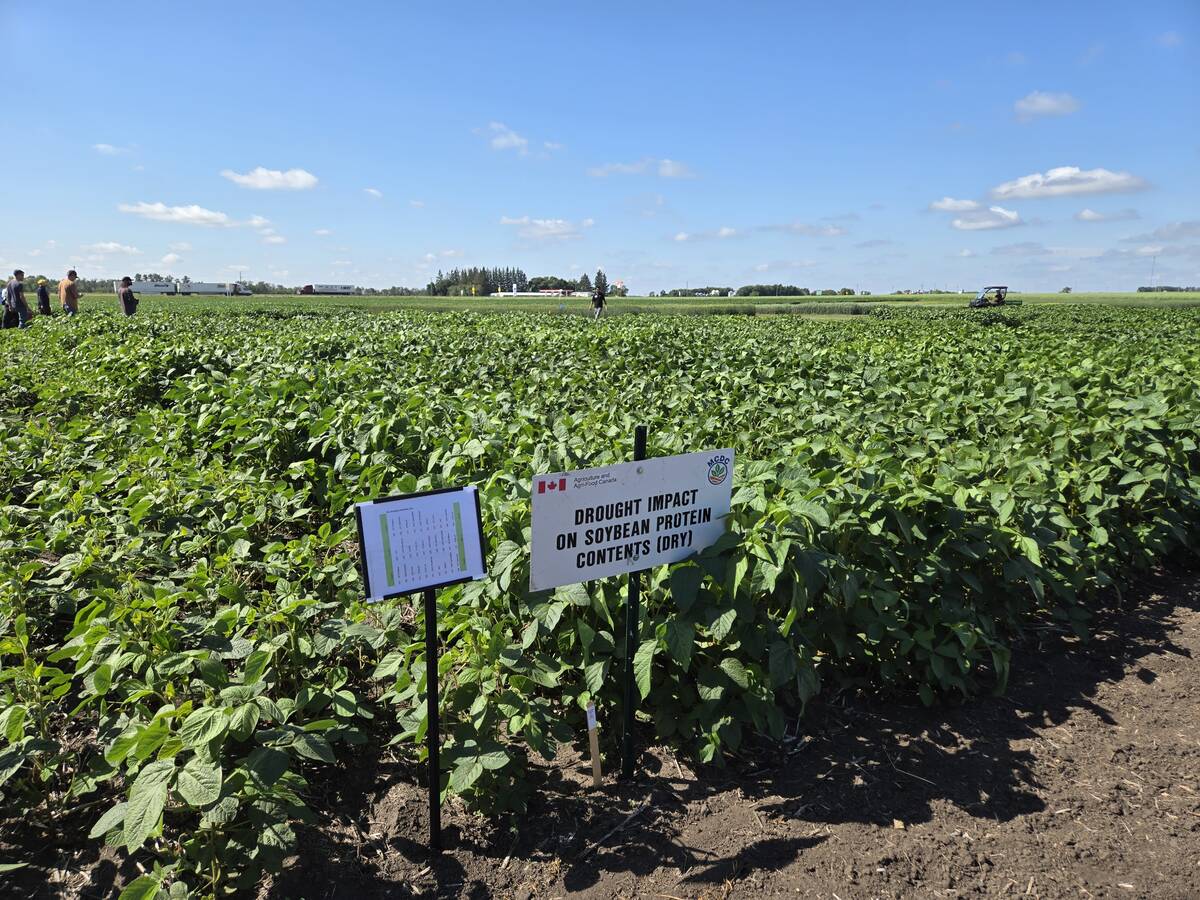EDEN PRAIRIE, Minn. – Consumers are demanding that food processors prove their products are safe.
That means farmers should expect grain buyers to push those consumer demands back to the farmgate, says a major oat miller.
“In five years from now, we may be required to have individual growers be able to do testing on farm,” said Grain Millers Inc. president Steve Eilertson.
“The best place to find a problem is on the farm (rather than once the grain is mixed with other grain at the mill).”
Read Also

Carberry field day looks for agriculture solutions
Manitoba farmers explored research solutions for resilient crops, perpetual agronomic issues and new kinds of agricultural products at a field day at the Manitoba Crop Diversification Centre in Carberry on Aug. 6.
Grain Millers is a major buyer of Canadian oats through its Yorkton, Sask., plant and its oat mills in Iowa and Oregon. Thousands of farmers deliver to the Yorkton plant and the American plants receive unit trains from Canadian grain companies.
Grain Millers buys and mills oats for a number of companies, and also works in the specialty and organic food industries, which tend to be among the first to demand extra quality assurance guarantees from the farmer.
Eilertson has seen demands grow for additional food safety and traceability.
“We’ve spent an awful lot of time looking at our systems and anywhere in our plants to make an assurance to ourselves and our customers that the way we are doing things is the best they can be done,” said Eilertson.
That includes building new truck inspection sites at its mills and placing new demands on truckers to prove they have safely hauled grains.
“We want to know where the grain’s from and where it’s been,” said Eilertson.
But Eilertson thinks customers want to trace food origins to the farmer’s field. Consumers want to know that the grain was safely grown and stored.
“We need the people we work with on the front line, the grain companies and the growers, to become more diligent as well,” he said.
“(The farmer) needs to know which field it’s from, where it grew and what bin it’s been in.”
Farmers tend to dislike extra requirements, but consumer demands are growing and won’t go away, Eilertson said.
Already niche crop growers have accepted these demands as part of the cost of doing business.
“We’ve been doing this with organic for 20 years, but the traditional, conventional grower doesn’t think of that,” he said.















